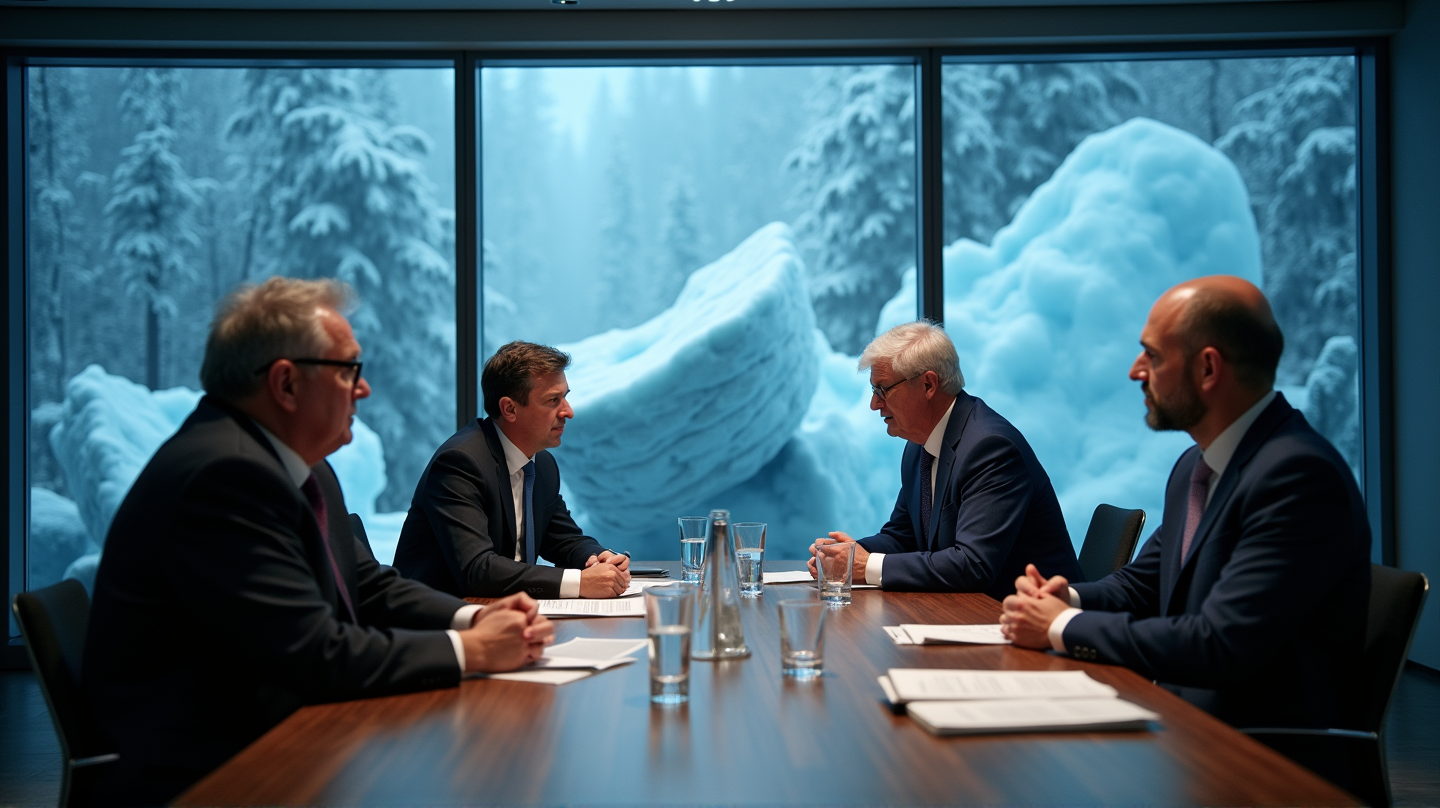EU Finance Ministers Mull Over Frozen Russian Assets Amid Complex Discussions
Copenhagen's pivotal meeting sees EU leaders deliberating on turning CBR's frozen assets into Ukraine's hope amid ongoing uncertainties.

In the scenic city of Copenhagen, European finance ministers gathered with a singular objective in mind - evaluating the potential of repurposing frozen Central Bank of Russia (CBR) assets as a form of reparations for Ukraine. The tense atmosphere crackled with anticipation as the ministers grappled with the intricate legal and political implications of such a decision.
The Diplomatic Balancing Act
Negotiations in Copenhagen highlighted the delicate diplomatic dance required to utilize these frozen assets. Ministers faced the formidable challenge of aligning diverse interests within the European Union while ensuring that international law principles were upheld. The idea of deploying substantial funds towards Ukraine’s recovery was appealing, yet it demanded razor-sharp diplomacy.
Legal Complexities and Ethical Quandaries
While the concept of using frozen CBR assets as reparations for Ukraine gathered momentum, legal complexities loomed large. Various member states faced ethical dilemmas, weighing the potential impacts on their bilateral relations with Russia. Could these funds legally be redirected for reparations, or would it stir a geopolitical storm?
Political Will vs. Realities
A lingering question among the finance ministers was whether the political will could surmount the realities presented by geopolitical tensions and international protocols. Many expressed cautious optimism, acknowledging the significant benefits this initiative could offer Ukraine, yet emphasizing the necessity for consensus.
The Broader Implications for EU-Russia Relations
In the corridors of power, hushed conversations touched upon the broader implications for EU-Russia relations. Any decision to appropriate the frozen assets could redefine diplomatic ties and reverberate across global geopolitics. As they departed Copenhagen, the ministers knew that while decisions were postponed, a watershed moment loomed on the horizon.
This meeting marks a pivotal moment in Europe’s approach towards supporting Ukraine, as stated in bne IntelliNews. It remains to be seen how this unprecedented move will unfold, shaping the landscape of international relations.





